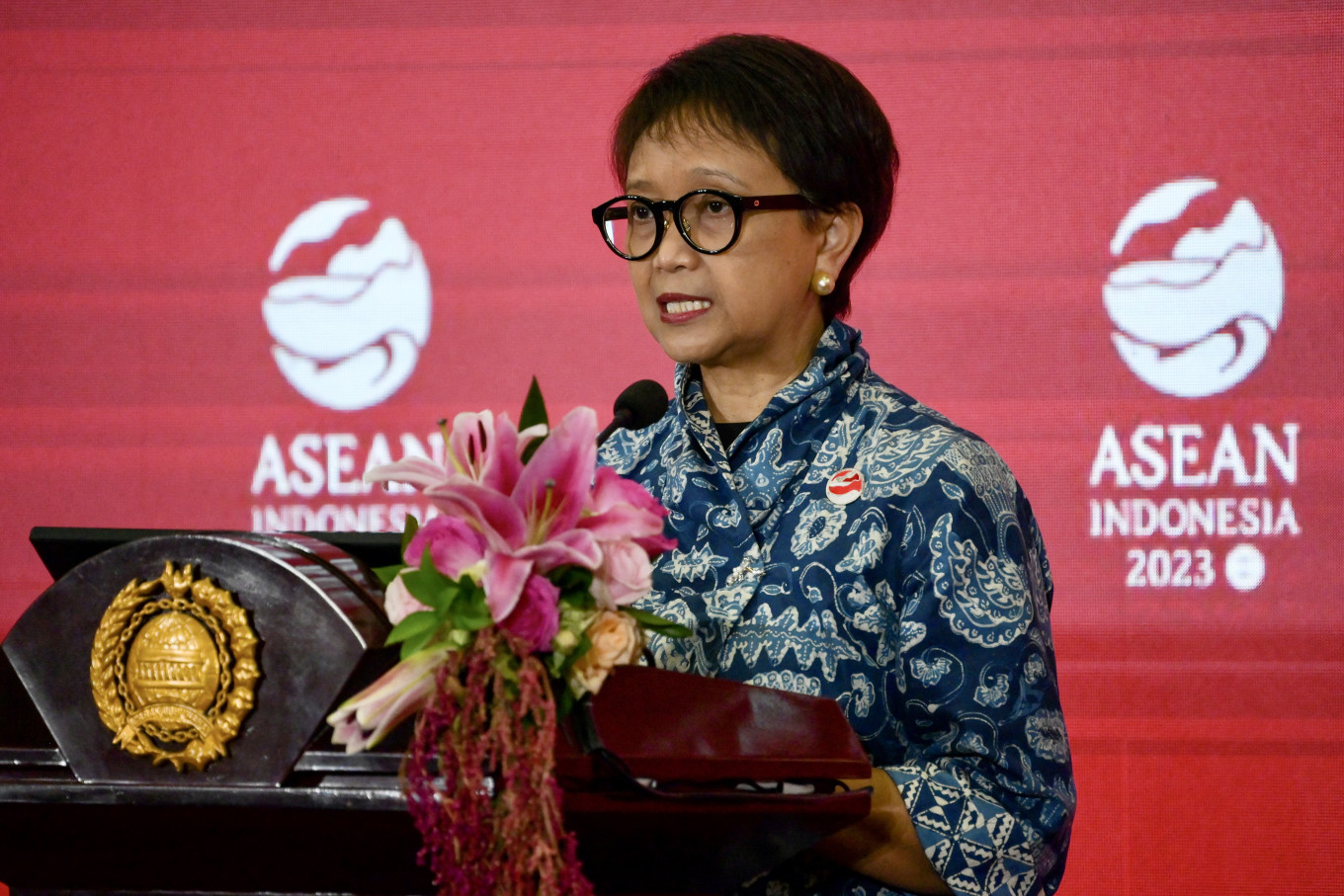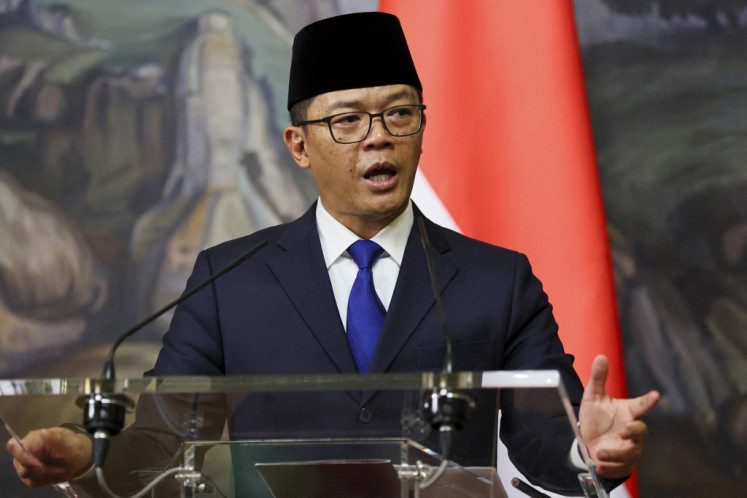Popular Reads
Top Results
Can't find what you're looking for?
View all search resultsPopular Reads
Top Results
Can't find what you're looking for?
View all search resultsLate Myanmar statement puts ASEAN, RI under scrutiny
Meanwhile, activists and observers who have been kept in the dark on Indonesia’s recent efforts on the Myanmar crisis have started questioning Jakarta’s claim, made last week, that “everything is on track”, given the recent violence.
Change text size
Gift Premium Articles
to Anyone

Two days after a Myanmar junta airstrike in Sagaing reportedly killed some 133 civilians, including women and children, ASEAN issued a chairman’s statement on Thursday to “strongly condemn” the act and call again for the full implementation of the its peace initiative, the Five-Point Consensus (5PC).
Meanwhile, activists and observers who have been kept in the dark on Indonesia’s recent efforts on the Myanmar crisis have started questioning Jakarta’s claim, made last week, that “everything is on track”, given the recent violence.
On Tuesday, the Myanmar air force launched what it described as a “limited” attack against opponents of its government and people. However, witnesses and first responders said the bodies of children were found following the airstrike.
The attack came as Indonesia entered its fourth month as this year’s ASEAN chair.
“All forms of violence must end immediately, particularly the use of force against civilians. This will be the only way to create a conducive environment for an inclusive national dialogue to find a sustainable peace solution,” the ASEAN statement read.
“We reiterate ASEAN’s commitment to continue assisting Myanmar in seeking a workable and durable solution to the ongoing crisis through promoting the full implementation of the 5PC.”
First agreed upon in 2021, the consensus calls for the immediate cessation of violence in Myanmar, the provision of humanitarian assistance and the appointment of a special envoy to engage with all conflicting parties in the country.
But little progress has been made as the agreement approaches its second anniversary.
Also on Thursday, ASEAN Secretary-General Kao Kim Hourn met with Aung Myo Myint, the permanent representative of Myanmar to ASEAN, in Jakarta.
“They took the opportunity to discuss and exchange views on the implementation of ASEAN’s Five-Point Consensus and the recent developments in Myanmar,” read a statement posted on ASEAN’s website.
“Kao reaffirmed the ASEAN Secretariat’s commitment to continue working closely with the ASEAN Chair and other ASEAN Member States in assisting Myanmar, especially in the delivery of humanitarian assistance.”
Progress?
Observers and analysts have noted the delay in the issuance of ASEAN’s statement on the strike.
A Foreign Ministry official told The Jakarta Post on Wednesday that ASEAN’s statement had to be cleared by member states before it could be publicly released.
Marzuki Darusman, a former Indonesian attorney general and founding member of the Special Advisory Council for Myanmar, told the Post on Thursday that the statement still deserved recognition for its frank language, which he noted was “uncharacteristic” for ASEAN.
“Within the ASEAN context, which typically prefers a restrained diplomacy, the strong condemnation is both uncharacteristic and extraordinary, despite it not being as swiftly issued as others,” he said.
Others urged Indonesia not to allow itself to be held back by the bloc’s mechanisms and to simply speak out as a sovereign nation.
“It’s unfortunate that Indonesia, after completing its third month as ASEAN chair, cannot differentiate between when it should act as the association’s leader” and when it should simply act as Indonesia, said Lina Alexandra, head of international relations at the Jakarta-based Centre for Strategic and International Studies (CSIS).
With no apparent progress on the Myanmar situation, observers and non-governmental organizations (NGO) have started expressing pessimism about Indonesia’s strategy, despite Jakarta’s assurances that its more oblique approach could allow a foundation of trust to be built between parties.
“How ironic that the airstrike happened just before the 5PC’s second anniversary. [...] This latest attack, only a few days after [Indonesia] claimed everything was on the right track, is a demonstration that they do not care about ASEAN or Indonesia as chair,” wrote Amnesty International director deputy Wirya Adiwena in a statement on Thursday, adding that the bloc needed a “bolder approach”.
Experts have acknowledged that the sensitivity of the issue may justify a quiet approach but have started calling on Jakarta to share some of its information and progress with select non-governmental institutions, including think tanks, for better collaboration in light of recent events.
Marzuki noted Indonesia had inherited an incredibly challenging Myanmar issue, where tensions had reached a fever pitch and conflicting parties were refusing to hold dialogues. It was premature, he said, to judge Indonesia’s competency on the issue three months into its chairmanship.
With many unknowns, anticipation is building for the ASEAN Summit scheduled for May in Labuan Bajo, East Nusa Tenggara, where Indonesia is expected to share details about its progress on the Myanmar issue.
The summit will run for nearly a week, and a non-political representative from Myanmar has been invited to attend, the foreign ministry said.









